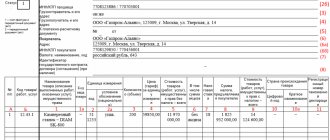The state, within the framework of social policy, strives to take care of categories of the population that are less protected than others. This happens in various areas, including providing assistance in employment of all groups of the population.
Finding a job is often difficult even for people with excellent health and special education.
What if we are talking about potential employees who have not yet reached the age of majority, have disabilities, or are experiencing any problems that do not allow them to perform labor functions on an equal basis with others? Are they doomed to live in poverty due to low employment prospects?
To take care of such people and give them the opportunity to earn a decent living, the state introduces a number of social guarantees. One of their varieties is job quotas, which are obligatory on employers.
Legislative regulation of quotas
There is no single federal law specifically devoted to the issue of work quotas, but this problem is addressed in the following federal regulations:
- “On employment in the Russian Federation” No. 1032-1 dated April 19, 1991 (no changes have been made since Soviet times);
- “On social protection of disabled people in the Russian Federation” No. 181 November 24, 1995
Detailed legislative regulation of the provision of employment under quotas is carried out at the local level, which is why the composition of potential employees for such jobs and state benefits provided to the employer for quotas may differ significantly in different regions of the Russian Federation.
Regional quotas
The authorities of the constituent entities of the federation can revise the list of categories of citizens entitled to work under a quota, as well as establish the exact values of quotas in the region (in accordance with the boundaries provided by the federal authorities). Such powers should help regulate and improve the labor market in a particular region , making work available to more vulnerable people.
Quota employment standards are fixed by a special legislative act developed and in force at the level of the entire region. Enterprises with 35 or more employees should be familiar with it: they will have to comply not only with the requirements of the federal law, but also with this document. You will have to bear responsibility for violation of quotas (more details in the corresponding section).
Calculation of quota places
The number of quota places is calculated based on local, not federal laws. Local ones must already fully comply with the general standards of the country. You need to find the relevant legislation: search on the Internet or directly contact the department/ministry of labor.
We looked at the first example of calculation in the section “Quotas for people with disabilities.” Let's look at another one. The plant employs 115 people; the region has a maximum quota of 4%. How many special jobs should such an enterprise provide:
115 x 4% = 4.6 = 5.
It is noteworthy that the result of the calculation in most cases is a fractional number. The laws do not provide specific instructions on how to round it, so the result is rounded according to general rules: up to 0.5 down, above 0.5 up.
Quotas should be provided for all enterprises with more than 35 employees
Who has the right to apply for a job under a quota?
People who, for whatever reason, have problems finding a job need social protection. Regional regulations of each specific subject of the Russian Federation provide a list of categories that have the right to occupy jobs reserved for them. The list may be different, but no matter what area it belongs to, it will certainly include two categories of socially vulnerable segments of the population that must be taken care of.
- Disabled people of groups 1 and 2. Such persons are employed in places specially designated for them, allocated by entrepreneurs. The employer must remember that people who are not completely healthy are entitled to a shortened working day, not the entire list of work functions is available to them, and they cannot be forced to work overtime or night shifts.
- Persons under 18 years of age. Official employment in the Russian Federation is allowed from the age of 14, and adulthood comes at 18. This period is often “dead” for teenagers who want to work, but are not accepted by employers. The state quota comes to the rescue. Employers of teenagers are required to comply with legal requirements regarding their organization of work - there are many restrictions and features for such employees.
NOTE! If disabled people of groups 1 and 2 do not express a desire to take all the quota places, the law is not against the fact that disabled people of group 3 are accepted into these places.
Other possible categories for quotas
In different regions of the Russian Federation, in addition to the two mandatory social groups, quota places may be provided to representatives of the following social groups:
- children raised in specialized institutions;
- teenagers growing up in large and/or single-parent families;
- children aged 14-18 whose parents are officially recognized as unemployed;
- single parents, especially mothers;
- prisoners who have served their sentence and have received employment opportunities;
- serving or commissioned military personnel;
- persons finding employment for the first time after graduation;
- able-bodied people of pre-retirement or retirement age;
- participants in the liquidation of the Chernobyl disaster, etc.
IMPORTANT! The key point of determining the category that needs quotas is the inability to compete in employment with other segments of the population.
Meanwhile, the opportunity to provide for oneself and one’s family is a basic need of any citizen, the provision of which is guaranteed by the state by the Constitution by granting the right to work.
What happens if you don't meet quotas?
Administrative liability is provided for the employer's failure to fulfill the obligation to create quota jobs. The fine for an official varies from 3,000 to 10,000 rubles, for a legal entity - up to 50,000 rubles.
Sanctions are also imposed on those employers who do not submit reports to the employment service, do so untimely, in partial or distorted form.
The employer has a choice: to hire the required number of employees or to pay to the Moscow budget an amount corresponding to the minimum wage of such unpleasant employees.
Despite the fact that this option seems simpler and more economical, in practice this is not always the case. Firstly, employers who create quota places are provided with economic support from the state. Secondly, sometimes a real employee is cheaper than paying the minimum wage to the city budget (for example, if he is employed for part of the salary).
Which enterprises are required to place quotas on jobs?
The obligation to provide social government guarantees is not imposed on every employer.
- If the number of staff in an organization is no more than 35 people, quotas may well never affect this company if it does not wish to do so.
- Personnel of 35 or more employees must consist of at least 3% preferential categories. That is, at least 1 employee must be hired under a quota in an organization with a staff of 35-40 people, and if there are from 70 to 100 employees, then there should already be 2 quota places.
- Larger organizations that can afford to maintain a staff of more than 100 employees must allocate 4% of jobs to quotas: at least 4 employees per hundred must be from socially protected categories.
- A further increase in the number of personnel does not affect the quota share - it remains 4 percent.
It is possible to employ more such employees than the law says, but a smaller number is unacceptable. It is allowed to divide the percentage of the quota between different categories: for example, take 2% of minors and 2% of disabled people.
FOR YOUR INFORMATION! The form of ownership of the organization and the peculiarities of the organization of the labor process (except for the factor of harmful labor) do not matter for establishing quotas for jobs.
Quotas for the employer
Participation in the quota program imposes a number of obligations on the entrepreneur, failure to fulfill which is fraught with serious liability.
When starting a business, the owner of the organization is required to register with the Center for Job Quotas. Joining this social program is mandatory for everyone, even small organizations - because the number of staff may grow over time.
Package of documents for registration at the Quota Center:
- certificate of state registration (copy);
- charter (copy);
- paper on registration with the tax authority (copy);
- letter from the Unified State Register;
- information about the number of employees on staff.
After submitting documents, the entrepreneur is assigned a registration number, after which he must report quarterly to this Center in the same way as to the INFS. Information about the presence of quotas at the enterprise must also be submitted to the local labor exchange.
Within the enterprise, the manager must create a special normative act (regulation) regulating the quota process, issue an order and edit the staffing table.
What can an employer be punished for in connection with quotas?
Responsibility for missing deadlines or failure to register with the Quota Center may be imposed as a result of an inspection by labor inspectors and involves the imposition of fines.
Punishment is provided in the following situations:
- in a company with a certain number of personnel there are no vacancies under the quota or there are fewer than the stipulated number;
- People from non-preferential categories are employed in such positions;
- the employer refused an employee from such categories if there were available quota places.
IMPORTANT INFORMATION! The employer does not have to look for employees for quota places. Therefore, if such persons did not apply to him for employment, there is nothing to punish him for.
Quota places for other categories of the population
In addition to people with disabilities, regional regulations may provide the right to receive quotas for other categories of workers. In particular, they may be:
- minor children (aged 14 to 18 years);
- former children from orphanages;
- children from single-parent families;
- single mothers;
- former prisoners who cannot find employment after their release;
- young specialists (that is, graduates of educational institutions with no work experience);
- people of retirement or pre-retirement age;
- children from single-parent, large or low-income families;
- mothers with small children (up to three years old);
- liquidators of the Chernobyl accident, etc.
It is obvious that representatives of all the categories listed above are either socially unprotected or simply unattractive to employers as employees, for one reason or another. The quota is introduced precisely to help these applicants earn a living .
As for the number of places, it differs for each category and is set separately in a particular region, depending on the capabilities of local authorities. To obtain information about who exactly belongs to the beneficiaries and in what quantities quotas are provided, it is necessary to refer to the regulations adopted in individual constituent entities of the Russian Federation.
Find out how to get maternity leave if you don’t work! How to correctly calculate your sick leave? Our article contains all the information on this topic. How to resolve the issue of sick leave pay after your dismissal - read here.
Rights of the quota employer
For fulfilling quota obligations, the employer also acquires additional rights, mainly informational:
- The Employment Center and/or Quota Center must provide employers with any necessary information regarding preferential categories;
- the requirement for compliance with the position held also applies to quota workers - an insufficiently qualified or unable to cope with the duties of a “beneficiary” may not be accepted or dismissed in the same way as a regular employee (the reasons for the refusal must be justified).
Realization of the rights of persons with disabilities
The main category of workers for whom quotas are guaranteed are people with disabilities . Moreover, this guarantee is provided to them at the federal level.
Applicants can contact the employer either independently or after receiving a referral from the employment center. In the first case, to confirm their status they must provide certain documents, namely:
- a medical and social examination certificate indicating the disability group;
- individual rehabilitation program for a disabled person.
Without these documents, it can be difficult for an employer to determine whether an applicant belongs to a preferential category, so he is not obliged to employ him in a quota position. If disability is confirmed and the disabled person is hired, the procedure for applying for a job is no different from general cases.
A referral from the employment center is also possible, since the employer is required to provide a monthly report there on the availability of available places and the fulfillment of the quota. In this case, in order to receive a referral, the disabled person must first register as unemployed.
It is worth considering that in most cases, disabled people require the organization of special working conditions that correspond to their rehabilitation programs.
The employer must also comply with other legislative guarantees provided for such employees: install special equipment, organize shorter working hours, provide additional free leave, etc.








